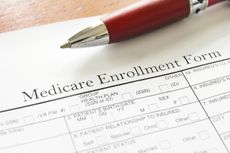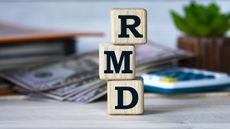Retirement-plans
Explore Retirement plans
Latest
-

Three Ways You Can Take Advantage of Extended RMD Ages
The extra time, thanks to the SECURE 2.0 Act, can be used to plan Roth conversions, consider tax breaks like qualified charitable distributions (QCDs) and reduce taxable accounts sooner at lower tax rates.
By Chris Heerlein, Investment Adviser Representative Published
-

Retirement Account Moves to Make Before December 31
You can make retirement account moves before year-end. Consider topping off your contributions and taking your RMDs.
By Sandra Block Last updated
-

You Missed Medicare Annual Open Enrollment — Now What?
There are limited ways you can change your Original Medicare elections after annual open enrollment has closed.
By Donna LeValley Published
-

What You Can Do Now to Avoid Paying Higher Taxes in 2026
Tax rates are set to increase once the Tax Cuts and Jobs Act sunsets at the end of 2025, but steps you take now could put you in a better financial position.
By Joe F. Schmitz Jr., CFP®, ChFC® Published
-

RMDs Deadline Is Coming: What if You Don’t Need the Money?
New rules affect the age when you have to take your RMDs and what the penalty is if you mess up. There are also options to delay or avoid taking them.
By Evan T. Beach, CFP®, AWMA® Published
-

How to Measure the Health of Your Retirement Plan
These five key indicators can help you make decisions based on the overall performance of your retirement plan rather than individual variables.
By Brian Skrobonja, Chartered Financial Consultant (ChFC®) Published
-

One Key Rule for Understanding 2023 RMDs
RMDs Required minimum distribution (RMD) rules can be confusing, but there is a guideline that can help.
By Kelley R. Taylor Last updated
RMDs -

When to Apply for Social Security Payments? Your Age Matters
Do you know when to apply for Social Security benefits? What's the best age to start receiving monthly payments? Part of the answer lies in your birth year.
By Jacob Wolinsky Published
-

Year-End Tax Planning for a Financially Healthier Retirement
Getting your tax ducks in a row for the end of the year can decrease your tax liability and make the most of your income, now and in retirement.
By Ryan Marston, Investment Adviser Representative Published
